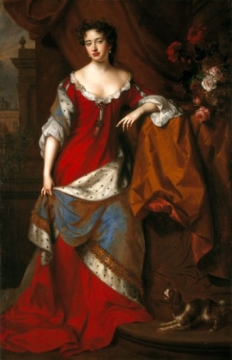Voice’s Alex Mitchell recounts the key events which informed and influenced the Union Of Parliament between Scotland and England in 1707, and in doing so, impartially debunks some commonly held and perpetuated views on the issue.
Recently, in 2007, we saw the tercentenary of the Act of Union of the Parliaments of Scotland and England.
The Treaty of 1707 was not the first attempt to unite England and Scotland. King Edward I of England tried to colonise Scotland in the 1290s. King Henry VIII embarked on another such venture, with his “rough wooing” of 1544-50.
Since the Union of Crowns in 1603, when King James VI of Scotland had succeeded to the throne of England, a single monarch had ruled the two nations, but this was not a sustainable situation, comparable with trying to ride two unruly horses at once.
The Union of Crowns made the Union of Parliaments almost inevitable. In 1650-51, Oliver Cromwell invaded and conquered Scotland, imposing a short-lived unified Commonwealth, with a single British Parliament. Scotland had benefited from the trading privileges this entailed, but the Restoration of the Stuart monarchy in the person of King Charles II in 1660 had swept all these aside, specifically by the Navigation Act of 1670.
The geographical proximity of England and Scotland made some sort of accommodation essential.
But English ministers showed little interest in a closer constitutional relationship with Scotland during most of the seventeenth century. Their position changed for dynastic reasons. Under the 1689 Bill of Rights, the line of succession to the English throne was limited to the descendants of Queen Mary II and her younger sister Anne, the (Protestant) daughters of the deposed (Catholic) King James II/VII.
Mary died childless, aged 32, in 1694, and her husband (and first cousin) William III, William of Orange, did not remarry. On his death in 1702, the throne passed to his sister-in-law Anne, whose last surviving child out of some nineteen pregnancies, William, Duke of Gloucester, had died aged eleven in 1700, leaving no direct heir.
The English Parliament favoured the (Protestant) Princess Sophia, Electress of Hanover and granddaughter to King James I/VI, and an Act of Settlement was passed to that effect in 1701. It laid down that, in the likely event of Queen Anne dying without surviving issue, the English throne would pass to the Electress Sophia and her (Protestant) descendants.
The 1701 Act of Settlement was extended to Scotland as part of the 1707 Treaty of Union. To this day, only Protestant heirs of Princess Sophia can succeed to the British throne. Neither Catholics, nor those who marry a Catholic, nor those born out of wedlock, may remain in the line of succession.
In the event, Sophia died just before Queen Anne, in 1714, and thus Sophia’s eldest son George succeeded as Elector of Hanover and as King George I of Great Britain, commencing the long “Georgian” era, which extended until the death of King George IV in 1830.
But the English feared that the Scots would prefer Anne’s half-brother, James Edward Stuart (1688-1766), the Roman Catholic son of King James II, in exile since the “Glorious Revolution” of 1689.
A major factor pushing England in the direction of Union was her heavy military involvement in Europe, specifically in the War of the Spanish Succession, from 1702 until 1713. England and the Habsburg Empire were allied against Louis XIV’s France, which at this time had a population of about 19 million compared with less than 5 million in England & Wales, and the military struggle between England and France continued, on-and-off, until Waterloo in 1815.
The English feared that the French could open a second front by inciting Jacobite rebellion, threatening England’s security on her northern frontier. Thus in 1702, Queen Anne assented to an Act of the English Parliament empowering her to appoint Commissioners to “treat” or negotiate for Union.
Otherwise, Scotland had little to offer England. The Scottish state was effectively bankrupt.
English ministers suspected that Scotland would be a financial liability; that the country would cost more to administer, police and defend than could be raised from it in tax revenues. And although England and Scotland were both Protestant countries, opposed in terms of religion to Catholic France, it was feared by English Tories that the more radical elements within Scottish Presbyterianism would have a destabilising effect on the (Episcopalian) Church of England, with its hierarchical structure of bishops and archbishops, appointed by the Monarch.
From a Scottish perspective, Andrew Fletcher of Saltoun favoured “nearer union with our neighbours of England”, but in terms of a federal union in which Scotland and England would retain their own Parliaments. He feared the loss of sovereignty an incorporating union would involve.
The Scottish Parliament passed a succession of Acts deemed contrary to English interests, notably the Act anent (concerning) Peace and War
Scottish opinion turned against union in the period after 1689, mainly because of the Glencoe massacre in 1692 and the failure of the Darien scheme, for both of which King William III was held partly responsible. The abolition of the Lords of Articles in 1690 – formerly a means of royal influence in Scotland – transferred substantial powers to the Scottish Parliament, newly elected in 1703, which began to act with new-found vigour and confidence, adopting a position of aggressive constitutional nationalism.
The Scottish Parliament passed a succession of Acts deemed contrary to English interests, notably the Act anent (concerning) Peace and War, which laid down that no successor to Queen Anne should declare a war involving Scotland without first consulting the Scottish Parliament; also the Act of Security, which asserted that the Scottish Parliament, twenty days after Anne’s death, should name as her successor a Protestant member of the House of Stuart.
To England, it seemed that the prospects of Union were slipping away.
With her forces now locked into the War of the Spanish Succession, and unable to risk the withdrawal of Scottish regiments from the north European theatre of war, plus rumours that arms from France were on their way to Scotland, London took the view that the unruly Scots had to be brought to heel and made to discuss the twin issues of the Hanoverian succession and the Union of Parliaments.
This resulted in the formidable economic bludgeon of the Alien Act of March 1705, which proposed that, unless progress had been made on the twin issues by Christmas – specifically that unless Scotland had accepted the Hanoverian succession by Christmas Day 1705 – all of Scotland’s exports to England, being linen, wool, coal, cattle & sheep, would be embargoed or banned, and all Scots would be declared and treated as aliens.
– Next week, Alex Mitchell presents Part 2 of this 3 part account.

